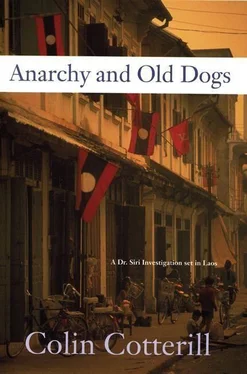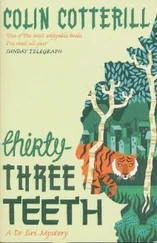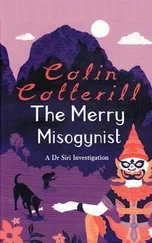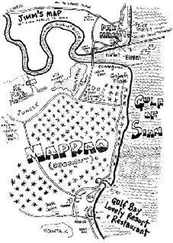Colin Cotterill - Anarchy and the Old Dogs
Здесь есть возможность читать онлайн «Colin Cotterill - Anarchy and the Old Dogs» весь текст электронной книги совершенно бесплатно (целиком полную версию без сокращений). В некоторых случаях можно слушать аудио, скачать через торрент в формате fb2 и присутствует краткое содержание. Жанр: Криминальный детектив, на английском языке. Описание произведения, (предисловие) а так же отзывы посетителей доступны на портале библиотеки ЛибКат.
- Название:Anarchy and the Old Dogs
- Автор:
- Жанр:
- Год:неизвестен
- ISBN:нет данных
- Рейтинг книги:3 / 5. Голосов: 1
-
Избранное:Добавить в избранное
- Отзывы:
-
Ваша оценка:
- 60
- 1
- 2
- 3
- 4
- 5
Anarchy and the Old Dogs: краткое содержание, описание и аннотация
Предлагаем к чтению аннотацию, описание, краткое содержание или предисловие (зависит от того, что написал сам автор книги «Anarchy and the Old Dogs»). Если вы не нашли необходимую информацию о книге — напишите в комментариях, мы постараемся отыскать её.
Anarchy and the Old Dogs — читать онлайн бесплатно полную книгу (весь текст) целиком
Ниже представлен текст книги, разбитый по страницам. Система сохранения места последней прочитанной страницы, позволяет с удобством читать онлайн бесплатно книгу «Anarchy and the Old Dogs», без необходимости каждый раз заново искать на чём Вы остановились. Поставьте закладку, и сможете в любой момент перейти на страницу, на которой закончили чтение.
Интервал:
Закладка:
“Probably not,” Siri answered without any great conviction. “I’ll have to get it fixed, though.”
“Right. We’ll just stop off at the nearest haunted-hair-replaiting center.” Civilai crunched the gear, lurched a few times, and finally found a happy speed somewhere between walking and running with a stone in your shoe. Siri looked at the unmoving speedometer.
“At this rate the hair will have grown back naturally by the time we get anywhere.”
“More haste, less speed. Remember the hare.”
“I seem to recall the tortoise died of old age before he reached the finish line.”
In a city with so few cars, the green army jeep that tailed theirs was never likely to blend into traffic. The only way Civilai could fail to notice it was by being in a Willys with no rearview mirrors, which indeed he was.
They found the only hairdressing salon open before eight. The waxen-faced girl who ran it assured Siri she could reweave the plait but she’d have to make it shorter by some three inches. The hair string was wound and knotted tightly through the loop of the amulet, and Siri’s instructions from the amulet maker had been that the hair and the pendant should never part company. Their blessings were intertwined. He had no choice therefore but to leave both at the shop. The girl told him it would be ready that evening and hesitantly suggested a price of two hundred kip. Siri gave her his most charming smile and told her if she did a good job, it would be worth even more.
Ten minutes later, the jeep pulled up into a bush in front of the Champasak palace. What little brake fluid there was had been used up at the hairdresser’s and Civilai had adopted the tactic of finding something soft to crash into. They sat in their seats and gazed up at the gargantuan monstrosity that loomed over them: Prince Boun Oum’s Disney castle. It was five stories of would-be splendor: a central block with two ornately tiered wings. It was unpainted, unfurnished, and unlovely.
“It looks like something you could make with playing cards,” Civilai suggested.
“Let’s hope it’s sturdier than that.”
There was an enormous wooden double door at the top of the front steps, the type you’d expect to find a huge knocker hanging from, but it was unadorned, not so much as a keyhole. Perhaps that was why they were surprised to find it locked.
“Anybody home?” Civilai yelled. In fact, there was no glass in any of the three hundred windows, so if there had been anyone home they would already have heard the jeep chug up the driveway and smash into the bougainvillea. “Nobody home,” he said. “Let’s go.”
“Let me try,” Siri said. He hammered on the door and shouted, “We know you’re in there. I’m Dr. Siri from the Department of Justice and I have a warrant to search these premises.”
Civilai laughed. “I hope you aren’t planning to tell them to come out with their hands up. You don’t really expe-?”
There was a subtle click from somewhere behind the huge door and one side creaked open. Standing there in the shadows was a couple, late middle-aged, dowdy, and stooped. Surprisingly, they were holding hands. Couples rarely held hands in Laos unless they were drunk. The man looked as if he’d just woken from several months of hibernation, during which time he hadn’t eaten. His features seemed to be draped loosely on his face. The rest of him was built like a wire coat-hanger sculpture. The woman’s skin was the color of ash; her eyes no more than hyphens.
“Sorry,” she said, “we were out back.” She had a voice like someone with long fingernails sliding off a tin roof.
“You’re the caretakers?” Civilai asked.
“Sort of,” she replied. The male simply glared at the two old men, grinding his teeth.
“We look after things,” she continued. “When it was empty, a lot of the stuff… disappeared. All the tiles went, the balustrades. If we hadn’t moved in when we did there’d probably be nothing left at all by now.” Siri wondered whether that would be such a bad thing.
“So you’re the government then,” she said.
“Not all of it,” Civilai replied. “We’ve just come to have a look around. Won’t keep you long.”
They edged warily past the glaring man and found themselves in an empty vestibule. It was impressive that such a large edifice could make so little of space. It was a building site that didn’t make any promises of better things to come. They walked up the wide staircase to the open-air second and third floors.
“They didn’t get around to putting in rooms, I see,” Siri said.
The woman was at his shoulder, still holding on to the hand of her partner.
“The prin-I mean the original owner-wanted it like this, no rooms, just wide open spaces,” she said. “Just five big areas like the palaces in Europe. It would have looked so beautiful if they… if production hadn’t been halted.”
“Who pays you to look after it?” Siri asked. “The local government?”
Her laugh scratched hell out of the tin roof. “No, sir,” she said. “They wouldn’t care what happened here. We’re volunteers. We have friends who put a few francs together to help us out.”
It was clear to Siri that supporters of the old regime were funding this preservation project. It wouldn’t have surprised him if they expected the good old days to be restored and Prince Boun Oum himself to come riding back into town on his white elephant. Royalists were eternal optimists.
They’d reached the fourth floor, where wide terraces opened out to the elements on all four sides. At the rear, the Se Don River brushed the skirt of the building before joining the mighty Mekhong. In the distance were the Champasak plains and the slopes of the Bolaven Plateau.
“The view’s grand, I’ll give it that,” Civilai said, leaning on the balcony. Below them were grounds that would look spectacular with greenery, the makings of a tennis court, a huge water tower, and accommodations, presumably for the menial staff. “Even the gardener’s cottage is bigger than your house, Siri.”
“Everything’s larger than life,” Siri said. “A reflection of the man’s ego.” He thought he’d spoken softly enough but the woman had bat’s ears.
“He was a good man,” she snapped. “A kind man.”
Siri wasn’t about to get into a fight with Royalists. He fumbled around for a change of subject.
“Your husband doesn’t have a lot to say, does he?”
“He doesn’t have anything to say. He’s dead.”
Siri and Civilai looked at one another. Even to a coroner, this was something of a revelation.
“He…?”
“He’s been dead for seven years. This here is my brother. He has problems.”
“Of course.” A second change of subject was in order. “What’s up there?”
He pointed to the top floor. The building had tapered to a single round room, the size of a small observatory.
“Nothing,” she said, too briskly to be true.
“We have to take a look anyway,” Civilai told her, and started up the exterior stairwell.
“It’s locked,” she shouted after him, but he continued to climb. The first door he tried proved her wrong. He disappeared inside and Siri followed close behind. The two of them stared transfixed at the domed ceiling. It sported painted scenes from the Ramayana and jungles teeming with badly drawn, wooden wildlife. Around the margin an infinite procession of deformed elephants marched. Their mahouts were wearing hard hats and carrying sledgehammers.
“They did that,” the woman spat, following them in. “Your people. Beautiful it was, country people riding their elephants to pay respect to the prince. Then your lot came in and painted on the helmets and the blue-collar uniforms. They said it was too bourgeois; it didn’t represent the workers. What, may I ask, is bourgeois about a man riding an elephant? Ruined it, they did. Ruined it.”
Читать дальшеИнтервал:
Закладка:
Похожие книги на «Anarchy and the Old Dogs»
Представляем Вашему вниманию похожие книги на «Anarchy and the Old Dogs» списком для выбора. Мы отобрали схожую по названию и смыслу литературу в надежде предоставить читателям больше вариантов отыскать новые, интересные, ещё непрочитанные произведения.
Обсуждение, отзывы о книге «Anarchy and the Old Dogs» и просто собственные мнения читателей. Оставьте ваши комментарии, напишите, что Вы думаете о произведении, его смысле или главных героях. Укажите что конкретно понравилось, а что нет, и почему Вы так считаете.












